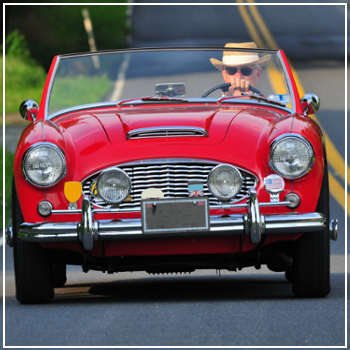 After you've done your research and found the sports car that catches your eye, it's easy to get excited. But before you make the big purchase or sign on the dotted line, take a moment to think about the unique challenges that come with owning a high-performance vehicle.
After you've done your research and found the sports car that catches your eye, it's easy to get excited. But before you make the big purchase or sign on the dotted line, take a moment to think about the unique challenges that come with owning a high-performance vehicle.
1. Finding Replacement Parts
If you're dreaming of a classic muscle car, whether it's for restoration, daily use, or just for the thrill, one major hurdle is parts availability. Unlike modern cars, many vintage models don't have readily available components at your local auto store. You might need to order from specialty suppliers, join a car club, or even attend auctions to find the right pieces. Plus, older cars often lack modern safety features like airbags or seatbelts, which could be a concern if you plan to drive it regularly.
2. Safety Features May Be Limited
While sports cars like Porsches or Mercedes are built for performance, they often sacrifice some safety features. Many of them have fewer passive safety elements, such as adjustable headrests, which can increase the risk of whiplash in an accident. Their bucket seats are usually fixed, offering less flexibility than standard seats. Also, even though they may have advanced active safety systems, their design might not provide the same level of protection in certain types of collisions.
3. Design Can Impact Safety
Sports cars are typically smaller, lighter, and lower to the ground, which makes them fast but not always safe. This design can lead to several issues:
- Reduced rear visibility, making it harder to see what's behind you.
- Larger blind spots due to their compact size.
- In a collision with a larger vehicle, like an SUV or truck, the sports car may not benefit from the same crumple zones, increasing the risk of serious damage.
- The lighter build means more vulnerability in accidents, especially at higher speeds.
- On wet roads, the powerful engines can increase the chance of skidding or losing control.
- Winter driving can be more challenging due to their low center of gravity, making it harder to navigate snow or ice, even with all-wheel drive.
- Convertibles are especially risky in side-impact crashes because they lack roof support and pillars, leaving occupants more exposed.
4. Limited Crash Testing
Not all sports cars undergo rigorous crash testing. Organizations like IIHS and NHTSA don’t test every model, especially those with low production numbers. For example, convertibles weren’t tested until 2007, and only the most popular ones were considered. This means buyers may not have full confidence in the safety of the vehicle they’re purchasing. It’s important to do your homework and ask questions before making a decision.
Whether you're restoring a classic or maintaining your current sports car, it's wise to consult a trusted auto body shop. At DaSilva’s Auto Body, we offer expert assessments and quality repairs using industry-standard equipment. Don’t wait—schedule an appointment at our Naugatuck location today to ensure your car is in top condition and safe to drive.
Production Line With Clapboard
Clapboard,equipment,line
ChangZhou FENGJU Machinery Equipment CO., LTD , https://www.fengjumachinery.com